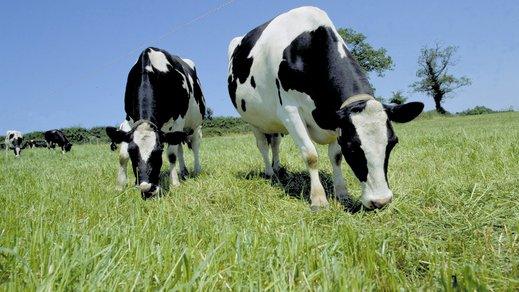Farmer whose herd faces TB cull criticises DEFRA compensation
- Published
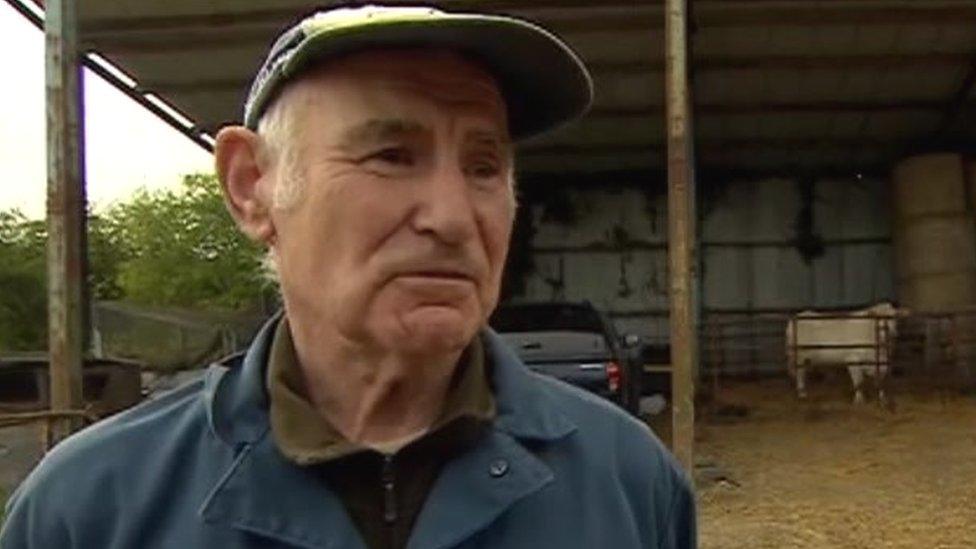
Michael Brown said Defra's system did not take into consideration what prices cattle can sell for
A cattle breeder wants the government to increase compensation to farmers whose livestock are infected with TB.
Michael Brown, from Herefordshire, said he was offered £1,850 for his prize-winning cow, even though he claims it is worth up to £15,000.
The charbron formal is one of two of his herd to be culled after testing positive for the disease.
Defra said it has a "clear and well-established" system in place for determining compensation.
The system takes into account an animal's pedigree status, type, age and sex.
But Mr Brown said it does not take into consideration the higher prices some cattle can reach.
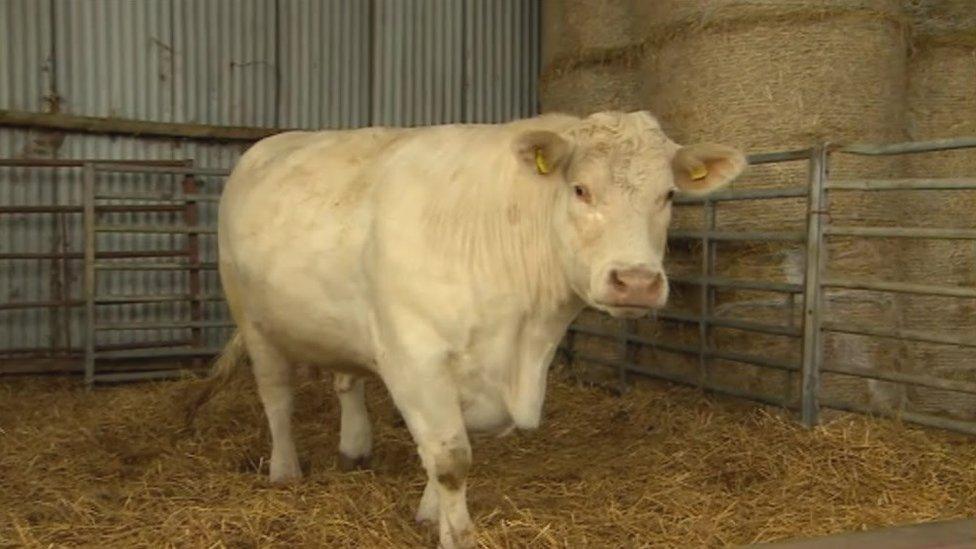
Mr Brown's charbron formal will be taken to the abattoir on Thursday
"It's tragic. Tragic to think they are going to go off at that stupid price when they're worth an awful lot more than money," he said.
"How can they average everything with different breeds and quality when we are talking about probably the best cattle in the country - I hope anyway...
"We can see prices for these cattle well into the £20,000's and bulls up to £100,000.
"It's going to have a very serious impact."
He said the charbron formal was one of the best cattle he had ever had.
Mr Brown, who breeds pedigree Charolais cattle in Leominster, has bulls that are free of TB but he cannot move or sell them due to restrictions in place because of the testing.
Almost 11,000 badgers were killed in 2016 as part of government plans to control the spread of bovine TB.
Defra said England - which has the highest incidence of the disease in Europe - will apply for Officially TB-Free (OTF) status for half the country this year, two years earlier than planned.

Bovine TB:
•Bovine TB is an infectious disease that mainly affects cattle
•It also infects other animals, including the badger
•Cattle with bovine TB are most often identified through testing using the tuberculin skin test before they develop obvious signs of the disease
•This is because the disease usually progresses slowly and it can take some time for clinical signs to appear
•When TB breaks out in a herd, affected cows are destroyed, and movement restrictions are placed on a farm
•The English and Welsh governments estimate they have spent about £500m in the last decade on testing, compensation and research
- Published1 February 2017
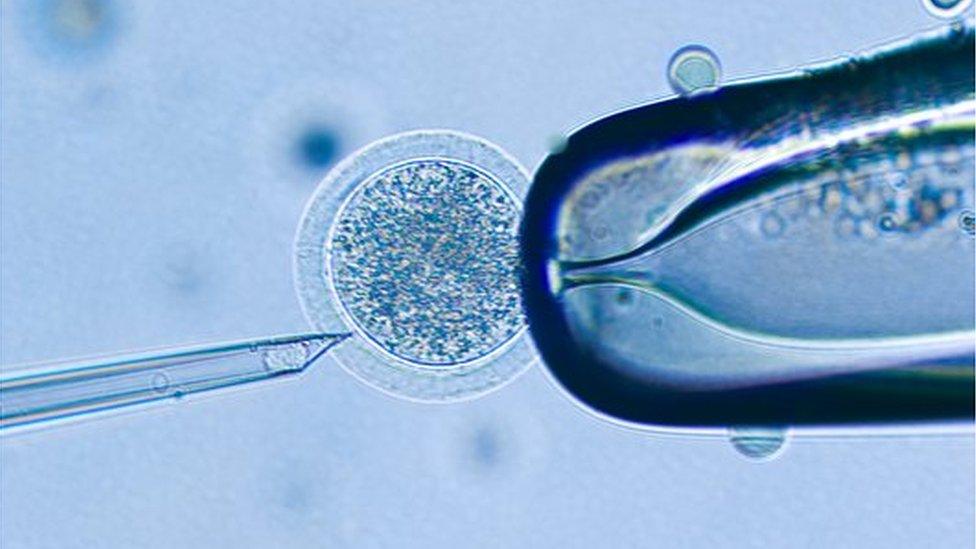
- Published2 July 2014
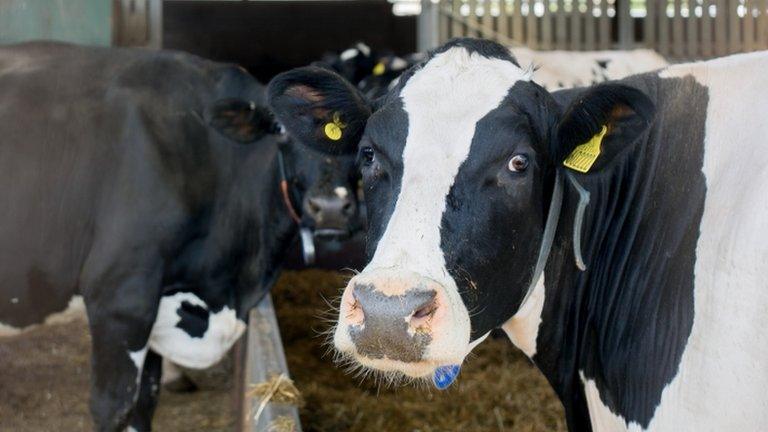
- Published4 July 2013
